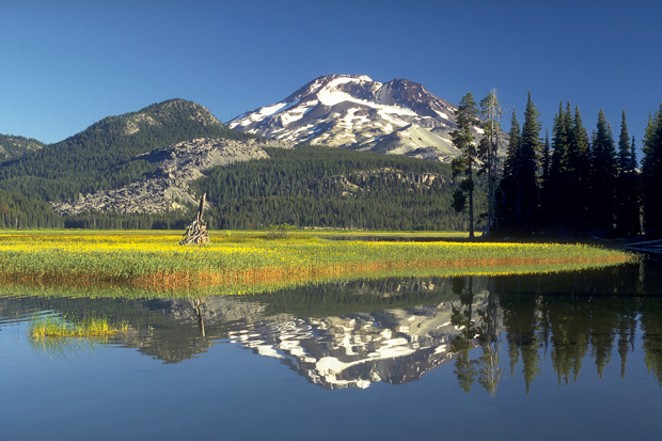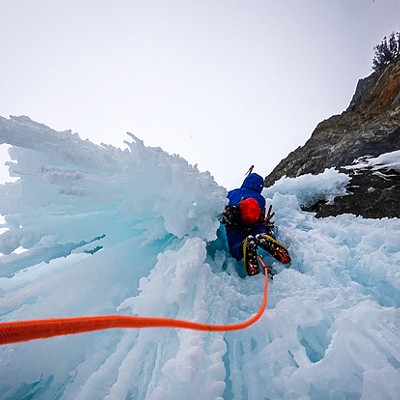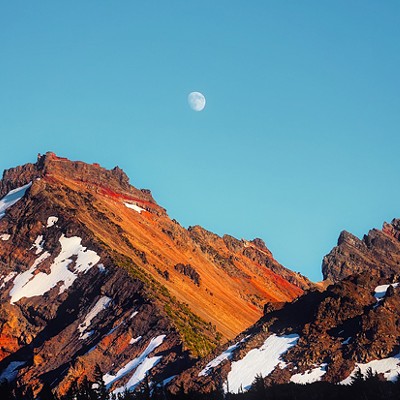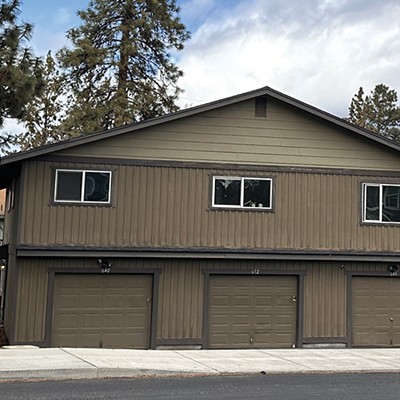On Oct. 8, the Deschutes and Willamette National Forests shared their plans for implementing the new special recreation permit fees and a limited entry system at a number of trails in the two forests—which include areas around the Three Sisters, Mt. Washington and other locations in the Central Cascades Wilderness. This is the next step in a process that began in 2017, when forest supervisors saw that increased use was degrading resources.
Following an environmental analysis, forest supervisors issued a Final Decision this May, which they said would seek to limit use on popular trails such as Green Lakes and Broken Top, among others. The new fees and permit requirements on certain trails will begin in the summer of 2020 and will be in effect from Memorial Day to the last Friday in September every year.

Forest supervisors are now asking for public comment on the following proposed fees:
Day-use permit fees of $3 for people over age 12 at 19 popular trailheads (12 and under would be free, but would still be required to get a reservation for limited-entry trails)
Overnight permit fees of $5 per person per night at 79 trailheads
In addition, the day-use and overnight trailhead permits would be subject to a quota system. The Devils Lake/South Sister trailhead would be limited to just 100 day-use permits each day. People will be able to obtain permits via the Recreation.gov website, or can stop at a Deschutes or Willamette National Forest office (such as the Cascades Welcome Center) to get help obtaining one.
For some of those who have lived in the area a while, these permits are a strong reminder that the region is growing in popularity and population—and represent a change that some will not heartily embrace. For the sake of the health of the wilderness, however, they're a necessity. The Forest Service officials involved have engaged in a transparent and open process that aimed to balance the needs and desires of many—and in the end, have developed a plan, based on public input, that limits access at fewer trails than was originally proposed.
One critique: we advocate for offering a fee waiver for low-income individuals—as even $3 or $5 can be a barrier for people who are struggling to pay the bills in a region where rents and mortgages continually rise faster than wages. In a point in time when diversity, equity and inclusion is a big topic in outdoors communities, we shouldn't overlook making provisions that address economic diversity.
But those who value recreation—and who also understand that protected, wild places have both aesthetic and ecological value—should look beyond the ins and outs of the permit system, and to the underlying structures that further threaten wilderness—or leave it less than protected. Oregonians, in this modern era, love to hike and camp in wilderness—but Oregonians have less of it than in other neighboring states. California, even with its massive population and high visitor numbers, has more than double the number of acres that Oregon does. Washington, too, has far more than Oregon. This is a call for Oregon's Congressional delegation to designate even more lands, since when there's more supply of wilderness, demand could drop in concentrated areas. Likewise, the amount of funding afforded to trails, campgrounds and other elements that allow people to access—and appreciate—our wild places is far less than activities such as logging and cattle grazing, which receive massive subsidies, while accessing public lands for private gain.
"It costs less than $1.35 per month to graze a cow and a calf on public lands," said Erik Fernandez, wilderness program manager at Oregon Wild said of grazing fees. "The amount of damage they do to streams and native plants is obscene."
And while hotel room taxes continue to go to tourism promotion in Bend and elsewhere in Oregon, that's at a rate dictated by the state. Locally, tourism promotion agencies such as Visit Bend have been doing more to promote good stewardship through initiatives such as the Bend Pledge. More education around stewardship is never a bad thing, whether from the Forest Service during this permit process, or from tourism promoters. But were the state to tweak its rules around how transient room taxes can be used, we have long held that even those "tourism promotion" funds could, in theory, be used for more "tourism-adjacent" things, such as housing for tourism workers. Lots to think about.
The Forest Service is now seeking public comment on its special recreation permit fee system, ending Nov. 25. Send comments to: [email protected], or mail them to: Attn: Recreation fees, 3106 Pierce Parkway Suite D, Springfield, OR, 97477.




![Tourism in the Time of COVID: Kevney Dugan, CEO of Visit Bend 🎧 [with podcast]](https://media2.bendsource.com/bend/imager/tourism-in-the-time-of-covid-kevney-dugan-ceo-of-visit-bend-with-podcast/u/r-bigsquare/12908687/bend-don_t-break-promo-slider.jpg?cb=1680199454)



















